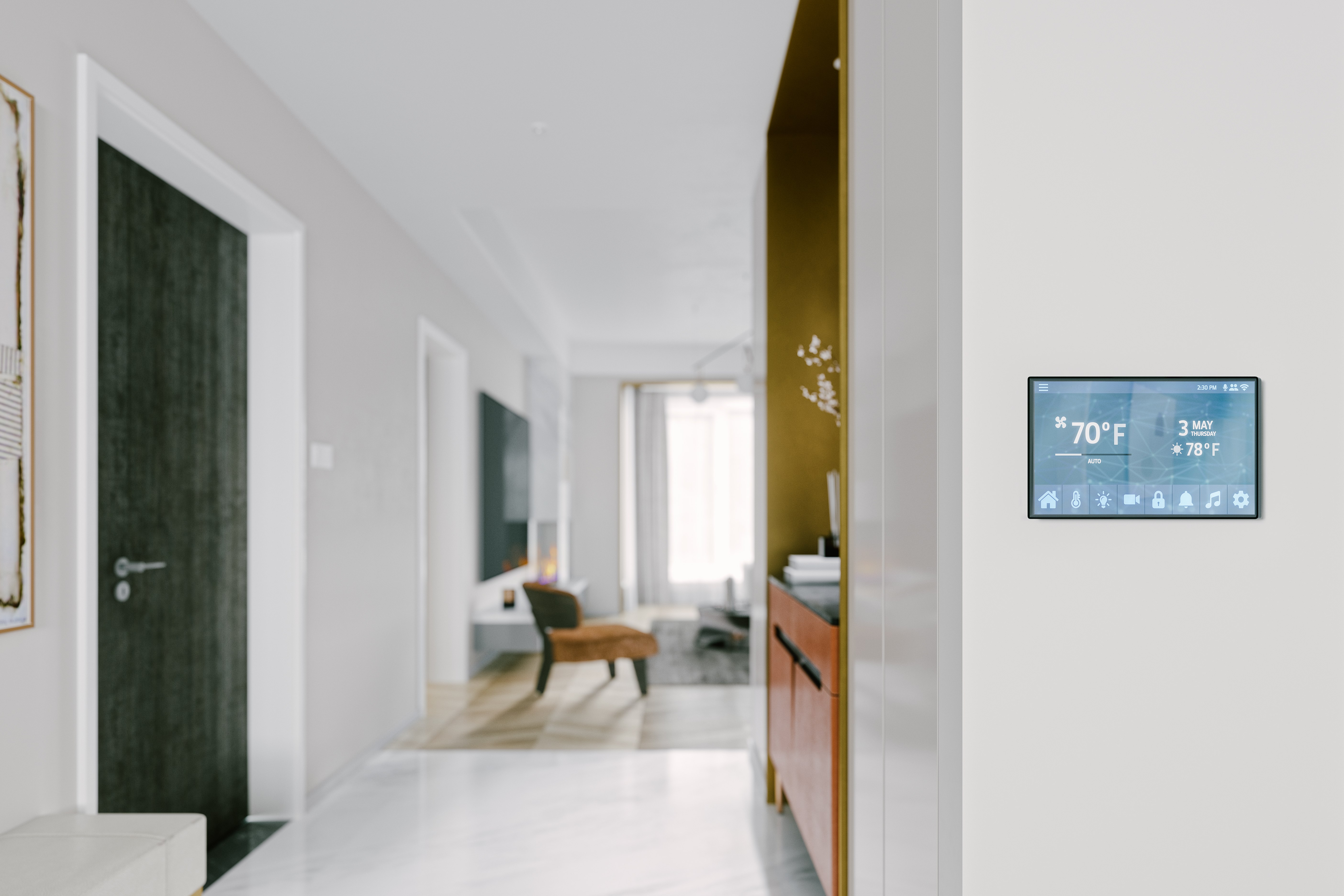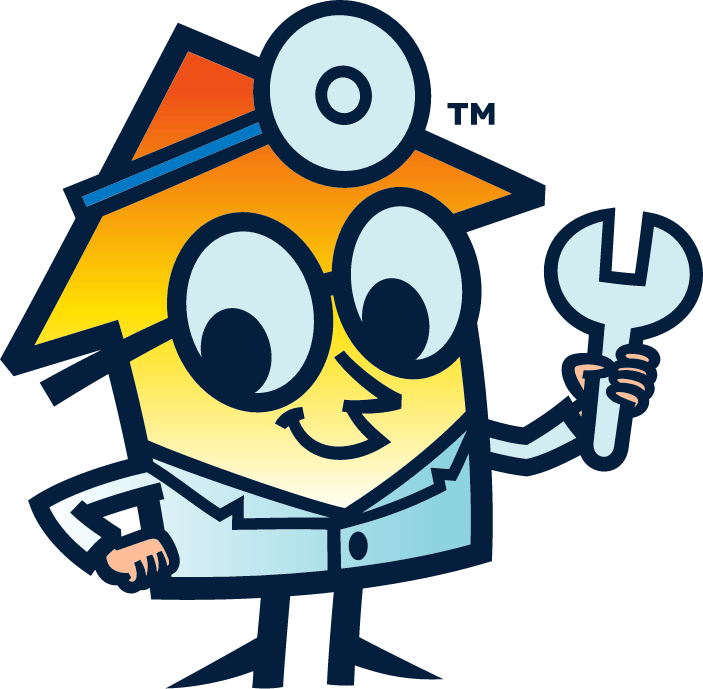Your heating and cooling system features several essential components. Some of these parts include the vents, the electric motor, and the condenser unit. Although relatively smaller in size, your thermostat is just as vital as all of the aforementioned features.
However, your thermostat is only as effective as you allow it to be. By misusing this device, you run the risk of overworking your HVAC unit, wasting energy, and significantly increasing your monthly electric bills. There are several mistakes that you’ll want to avoid to get the most out of your thermostat and your HVAC system.
1. Making Too Many Temperature Adjustments
It may be tempting to constantly adjust your thermostat. This is especially true if you are struggling to get your home to the perfect temperature setting or if your area experiences large temperature swings during the day and night. However, frequently adjusting your thermostat is not good for your thermostat or your HVAC unit.
Believe it or not, your AC system runs more efficiently when it remains at a set temperature for at least eight hours. Changing the setting more frequently can cause your unit to overwork. When the unit is constantly overworked and the components are consistently overburdened, it can lead to extensive wearing, unexpected malfunctions, frequent repairs, and premature replacements. The extra load on your AC can also lead to higher energy bills.
If you want to avoid these issues, find a setting that will allow you to remain comfortable for longer periods. Using your AC in conjunction with ceiling fans allows you to keep the AC at one temperature but turn the fans on during the hotter parts of the day. If you’re still not fully convinced, give it a try for a month or so. When you get your next energy bill, you should be pleasantly surprised by how much money you’ve saved.
2. Installing Your Thermostat in the Wrong Location
If your thermostat is in an ineffective location, you won’t be able to experience the true value and effectiveness of your unit. The main purpose of the thermostat is to measure your home’s temperature and to provide signals to your HVAC system that tell it when to turn on or off. The only way that this works properly is if your device is placed in a location where it can accurately measure the indoor climate.
When your thermostat is placed in direct sunlight, it will more than likely provide an incorrect temperature analysis. The sunlight will cause the thermostat to assume that your home is warmer than it actually is. If you’re using your heater, for example, the system will turn off before it reaches your desired setting. On the flip side, if you’re using your AC and trying to get cool, the false reading could cause the system to run continuously, even if it’s no longer needed.
This same issue could also be caused by placing your thermostat near an indoor heat source, such as a fireplace, an oven, or a dryer. The thermostat should also not be placed directly under an air vent. To alleviate these problems, check to see if your thermostat is near anything that could skew its temperature reading. If it is, you should seriously consider having it relocated.
3. Allowing Your Thermostat to Accumulate Dirt and Debris
When cleaning or dusting your home, your thermostat may be one of the last places that you’d think to clean. However, keeping your thermostat clean is a great way to help ensure its efficiency. When dirt, dust, and debris are allowed to accumulate in or outside of your device, it can cause several issues, including:
- Temperature miscalculations
- Disconnecting from the HVAC system
- A total lack of response
It may be hard to fathom that a little dust or debris can have such a huge impact on your HVAC unit, but microscopic pieces of dust and dirt can create havoc with intricate electrical equipment.
The good news is that keeping your thermostat clean is simple. You can use a soft brush or compressed air to clean off the exterior of the device. Be sure to clean all of the crevices. Keep in mind, however, that you should not open the thermostat and attempt to clean the inside. You could damage the wires or disrupt connections. If you think that your thermostat needs a deep clean, contact a technician from Thermo Direct who has the experience and equipment to clean the inside of your thermostat without damaging its components.
4. Setting the Temperature Too Low
At times, the summertime heat in Raleigh can become so unbearable that it feels like the only reasonable course of action is to set your indoor temperature as low as possible. However, a lower setting could be bad for your HVAC system. Even if the temperatures outdoors are sweltering hot, you should do your best not to put too much strain on your air conditioning unit.
The lower you set your thermostat, the longer it will take your AC to reach the desired setting. This causes your unit to work much harder and run for much longer than usual. It’s widely recommended that you don’t set your AC anywhere below 68 degrees. That way, you can beat the heat without wreaking havoc on your HVAC unit.
Do you have a habit of turning your thermostat a few extra notches down during the night before you go to bed? This is another habit that prompts some people to turn their air conditioning settings too low. Because you will be sleeping and relatively inactive, it’s best to keep your thermostat at a temperature that’s a little higher than it was during the day. This gives your system a rest and prolongs its lifespan. If you get hot at night, try wearing lighter pajamas and using thinner bedding. A small or medium-sized fan is another great way to help compensate for the higher temperature setting.
5. Not Using the Auto Fan Setting
Most thermostats provide both “On” and “Auto” setting options. Make sure that you use the “Auto” setting most of the time. If you’re using the “On” setting, your fan will continue running without a break. When this occurs, your system never gets a chance to rest and recover.
An overworked fan or HVAC system is more susceptible to malfunctioning and breakdowns. The “Auto” setting, on the other hand, allows your fan to turn off and on periodically and as needed. Not only can this help prolong the life of your system, but it can also help reduce your monthly energy costs.
Contact Us Today
Besides assisting you with thermostat-related issues, we provide a variety of other HVAC services. A few of our services include AC repairs, heating system replacements, surge protection, plumbing inspections, and spray foam insulation. We proudly serve customers in and around the Raleigh, NC area. Contact Thermo Direct today to schedule a service appointment.









